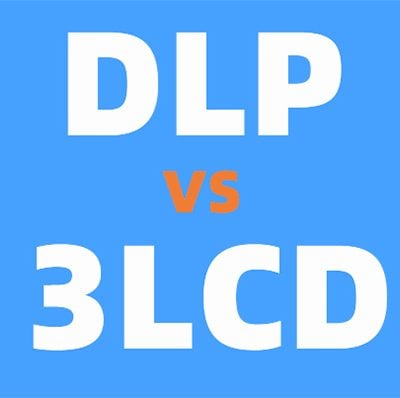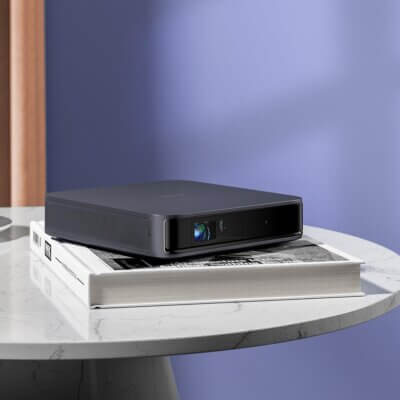DLP is short for Digital Light Procession.
It is a technique that digitally processes an image signal before projecting the light. DLP is based on DMD, a digital micromirror chip developed by Texas Instruments, to complete the final step of displaying digital visual information.
DLP projectors are therefore projectors equipped with DLP technology.
Working Principle
DLP projectors beam light through a color wheel, reflection mirrors, then finally a lens. You can view DLP as a technology delivering images using hundreds of thousands of tiny mirrors. These mirrors manipulate light to create an image.

Most DLP projectors adopt a color wheel, which spins RGB patterns in front of the light source at high speeds.
It can be divided into 3 kinds, say single-chip DLP, 2-chip DLP, and 3-Chip DLP, according to the number of reflection mirrors, The technology is based on a deep understanding of the human eye.
Features
It features more pixels for sharper images, which performs better in terms of reflection, contrast, uniformity. It delivers high image definition, uniform picture, sharp color, and stable picture quality, reproducing an accurate digital image.
Another advantage of a DLP projector is a smooth image with a large contrast ratio. These advantages make it the preferred technology used in the home theater area.
Nowadays, DLP projectors usually have a contrast ratio range of 500:1 to 100,000:1. The higher the contrast ratio, the more detail you can see in the image.
Related Posts
3LCD vs LCOS vs DLP Projector: Pros and Cons Introduction
DLP and LCD Projector which is better?
3LCD vs DLP vs LCOS: What Are the Differences?
Everything You Should Know About LCD
What is ALPD Technology?
What is LCOS Projection Technology?




